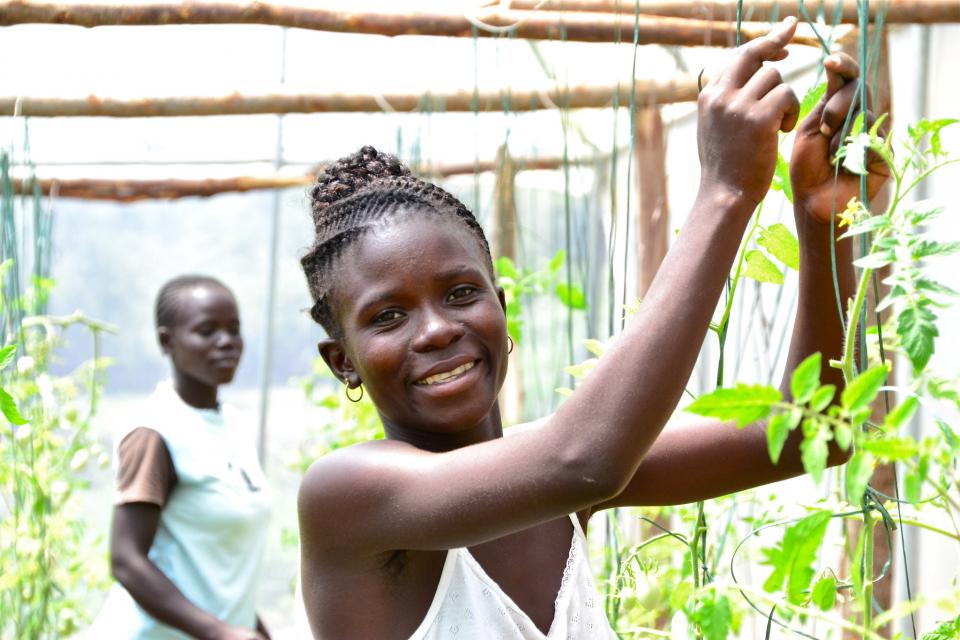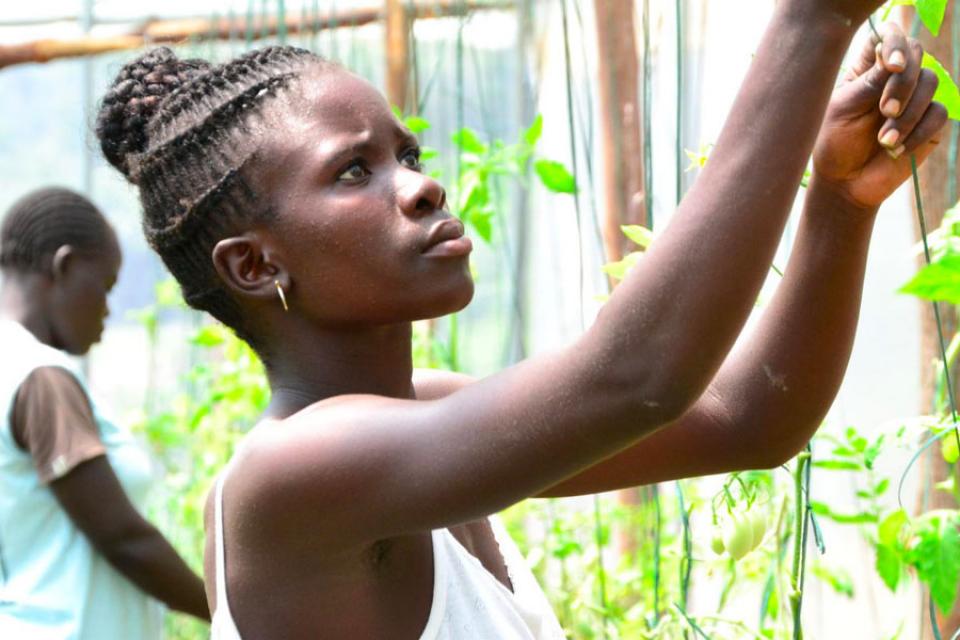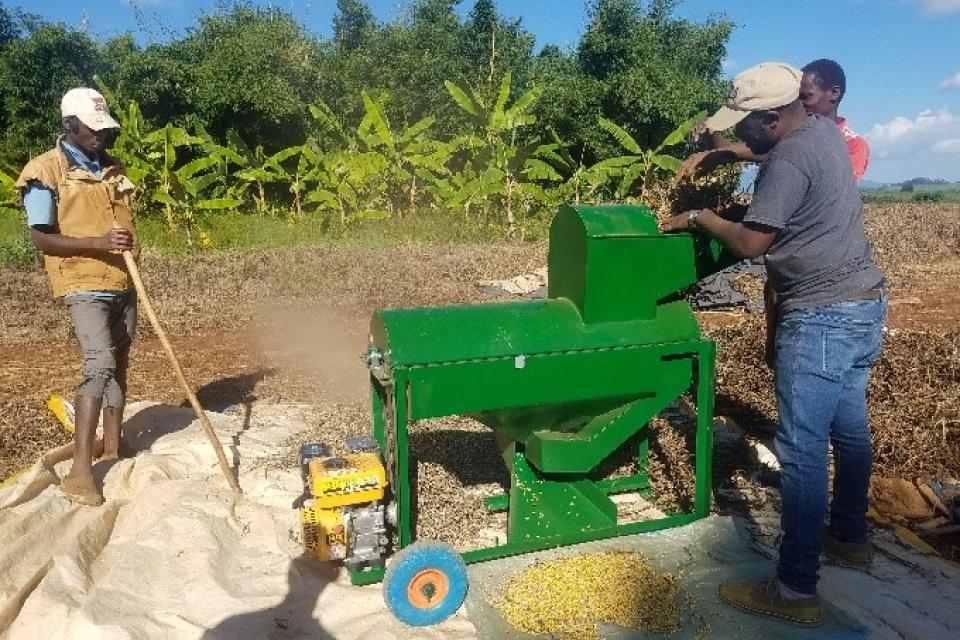'Don’t sell agriculture to the youth, sell opportunities...': CGIAR GENDER AT AGRF 2023
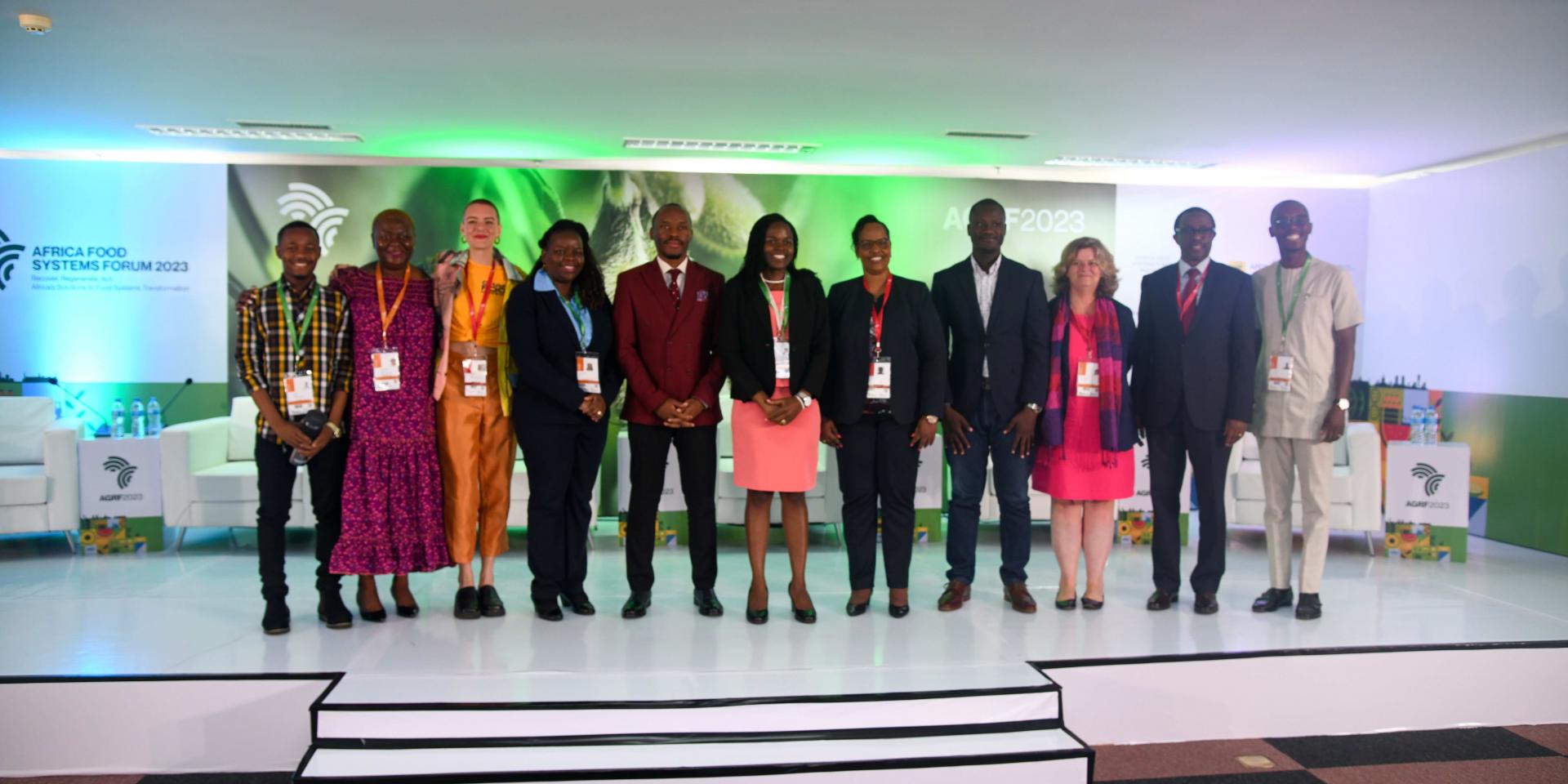
This post was first published by the FAO Regional Office for Africa.
4 September 2023, Dar Es Salaam – With a median age of 19, Africa has the youngest population in the world. This demographic dynamism presents a compelling case for governments, international organizations, the private sector, and more to prioritize the creation of professional opportunities for youth across the continent.
At the event convened by the Food and Agriculture Organization of the United Nations, the Southern African Confederation of Agricultural Unions (SACAU), Alliance for a Green Revolution in Africa (AGRA) and the CGIAR GENDER Impact Platform as part of the Africa Food Systems Forum (AGRF) 2023, the discussions were centred on not only creating sustainable jobs for youth but also showcasing the myriad opportunities available in the agriculture and agrifood sectors.
In attendance were high level dignitaries including Tanzania’s High Commissioner H.E. Ambassador Mahmoud Thabit Kombo. Others incuded youth representatives from Africa, policy makers, development practioners, donors, private sector actors among other players. Twenty-three-year-old Mr Fanleck Chaula from Tanzania’s was the youngest attendee who participated in the discussions.
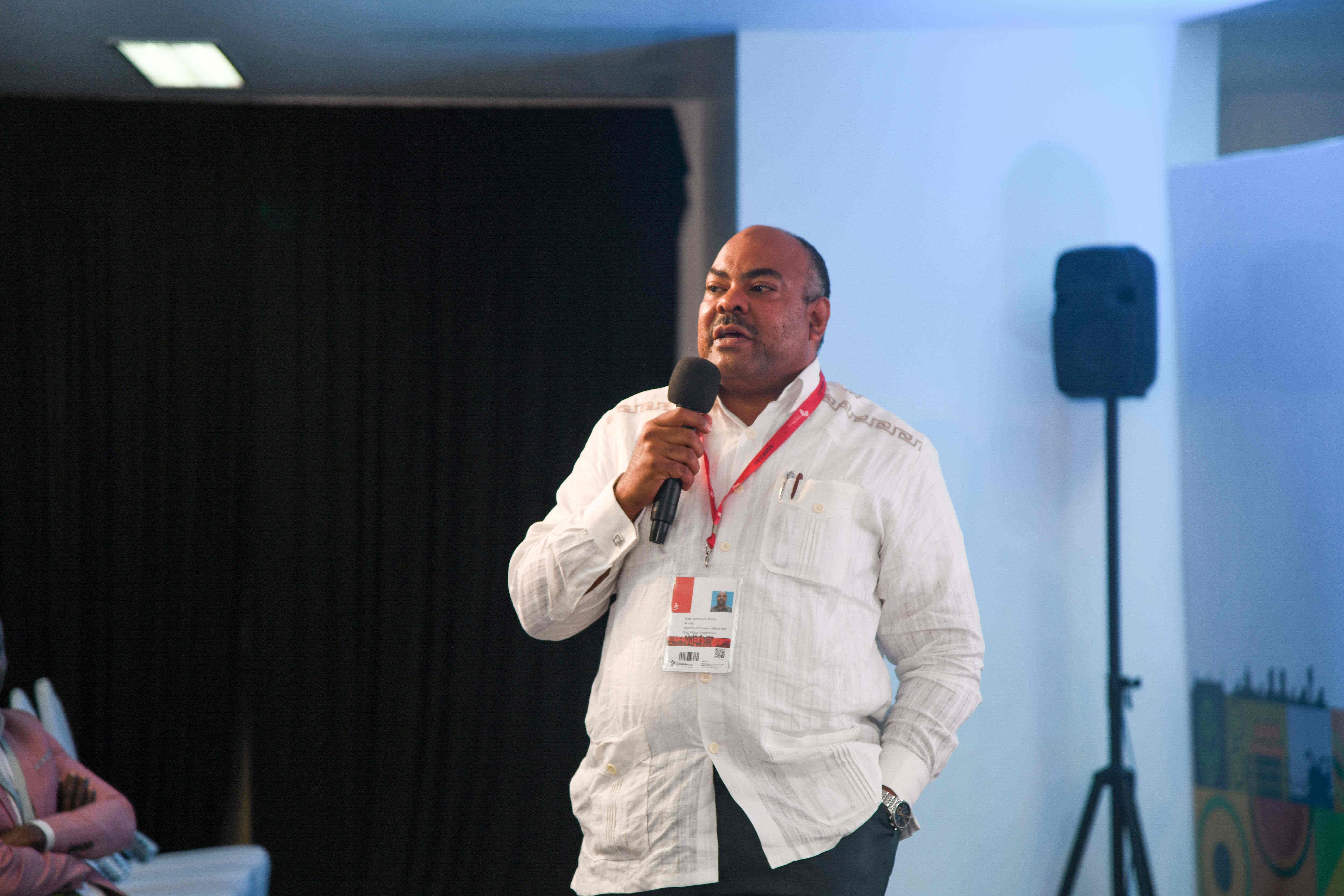
Tanzania’s High Commissioner H.E. Ambassador Mahmoud Thabit Kombo. (Photo: N.Ronoh)
“Don’t sell agriculture to the young, sell opportunities. As long as there are opportunities, especially in entrepreneurship, young people will go for it,” said Ishmael Sunga, Chief Executive Officer at SACAU.
Nomathemba Mhlanga, leading FAO’s work on decent employment opportunities in Africa, especially for youth and women, also pointed out that conversations on transforming agrifood systems in Africa must take youth into account.
“Youth are already harnessing opportunities offered. They are at the forefront of the transition, but they are among the most vulnerable groups as they face multiple challenges, especially those brought by climate change. By embracing the skills and ideas of young people, the agriculture sector can transform into a solution for the climate crisis rather than a contributor to the problem,” she said.
Young people set the example
The session saw the participation of young leaders setting the example, such as Daniel Opanga from the United Republic of Tanzania’s Sweet Potato Seed Producers Association who is a beneficiary of CGIAR’s International Potato Center seed system innovations, Pauline Lingg from the Ghana Food Movement and William Madudike, President of the Youth Board of the Zimbabwe Farmers Union.
“It’s not about making agriculture sexy or cool. It’s about highlighting the economic opportunities,” Madudike said.
“Food connects us all here today. It’s powerful, it’s politics. Food is also about employment and the future of youth. Food is a way to connect,” Lingg said.
Daniel Opanga emphasized that every value chain presents a range of opportunities to be seized. For example, the rising demand for byproducts of sweetpotatoes creates excellent opportunities for potential new businesses, he said.
William Madudike concluded with the loudest applause of the session when he said, “One question I often hear is, what are the youth bringing to the table? The youths are the table.”
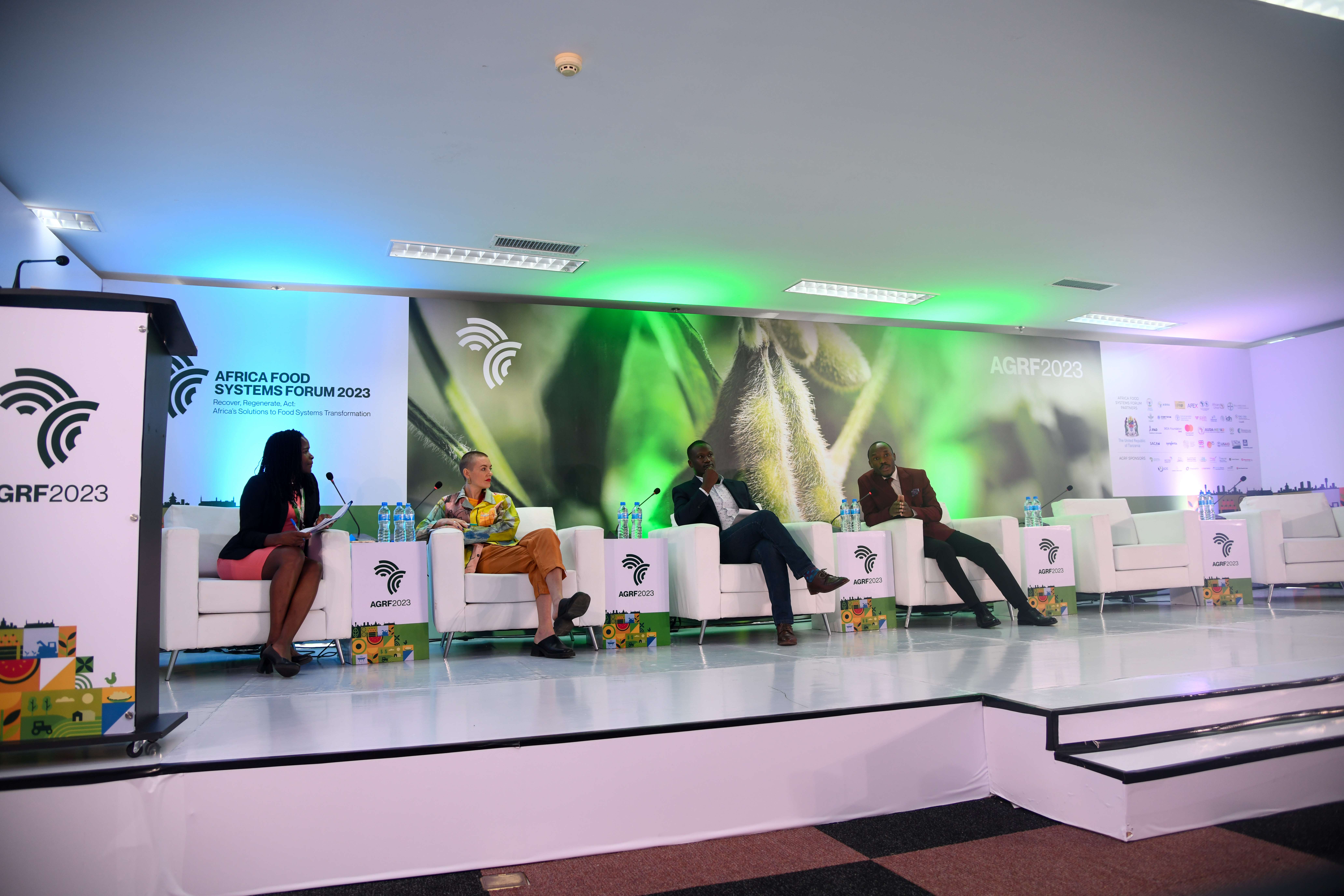
From Left, Vivian Atakos Moderating conversation with young Agripreneurs Pauline Lingg, Daniel Opanga and William Madudike. (Photo: N.Ronoh)
Support from institutions
The high-level panel that followed was attended by Hussein Mohamed Omar, Deputy Permanent Secretary, Ministry of Agriculture of the United Republic of Tanzania, Eileen Nchanji from the Alliance of Bioversity International and CIAT, and Edson Mpyisi from the African Development Bank (AfDB).
“Tanzania has three main objectives: increase productivity, increase export value, and create new jobs. Whatever we do for youth, they should be at the centre stage,” Omar said.
Edson Mpyisi said he was pleased to see more and more attention being placed on young people at the AGRF. He also outlined the areas where the AfDB is investing to support young people to become the farmers and agribusiness entrepreneurs of today and tomorrow: improved policies, youth incubation, and access to finance.
Finally, Eileen Nchanji highlighted the crucial role of the private sector in assisting and providing opportunities for young farmers and agripreneurs. “Enough training, let’s invest in projects and help bring them to scale,” she said.
Youth: Extended Mandate for CGIAR GENDER Impact Platform
While closing the session, Nicoline de Haan, CGIAR GENDER Impact Platform Director echoed the sentiments of the young people on selling opportunities to them. De Haan pointed out that the systems that have continually failed women are also failing the young farmers.
“Whenever we talk about the youth, it needs to be about business. We need to fix the system that is broken at some level.”
The CGIAR is working through the Platorm’s new mandate on youth to generate new evidence on the youth in food systems. To sustainably move forward, Dr. de Haan pointed that will need better data based on research.
“We cannot be here 10 years from now saying same things. Let us be unconventional in what we do” de Haan concluded.
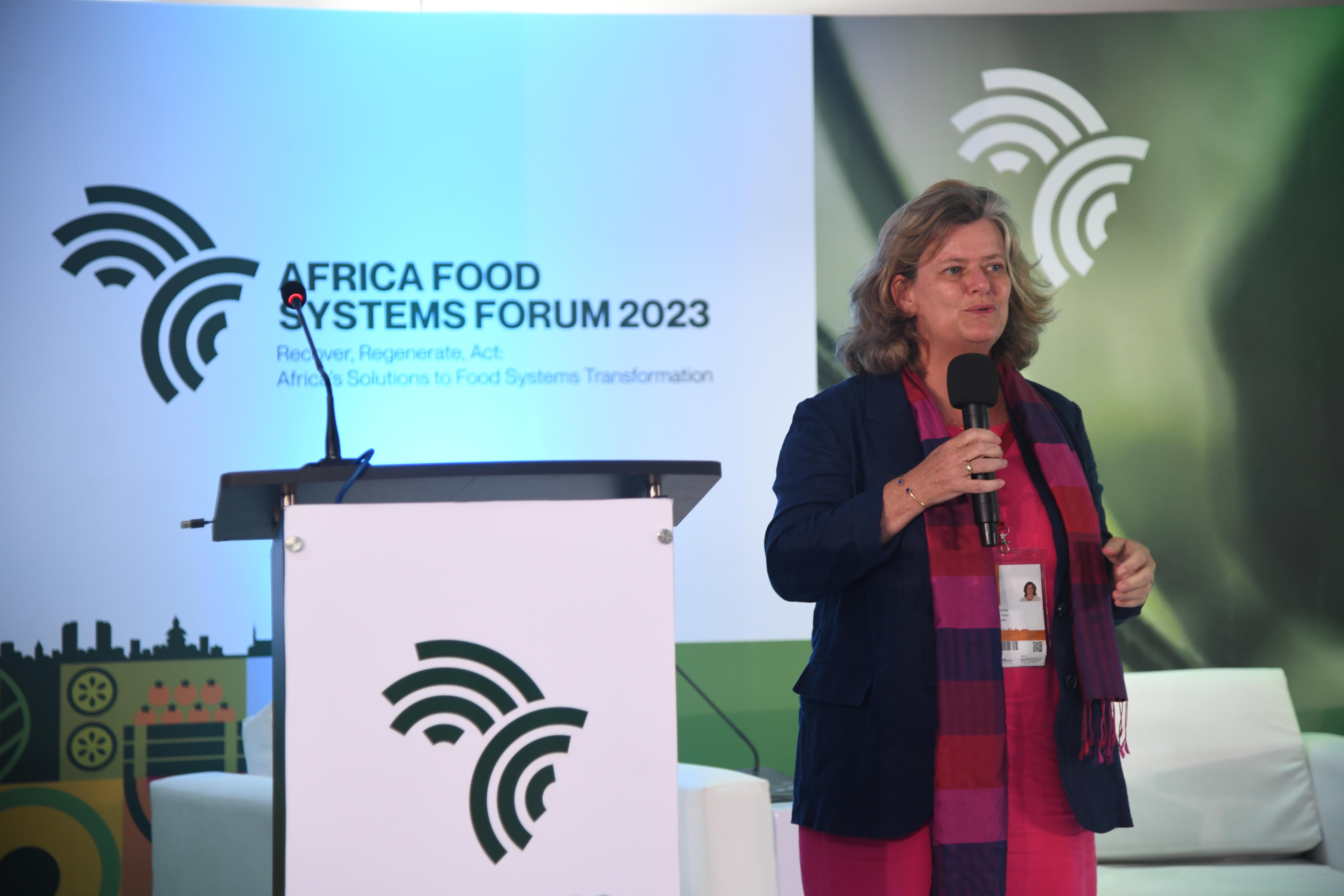
Nicoline de Haan, Director of the CGIAR GENDER Impact Platform giving the closing remarks. (Photo:N.Ronoh)
